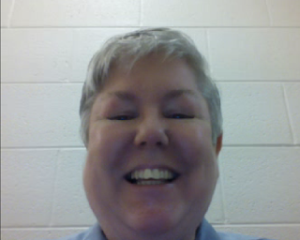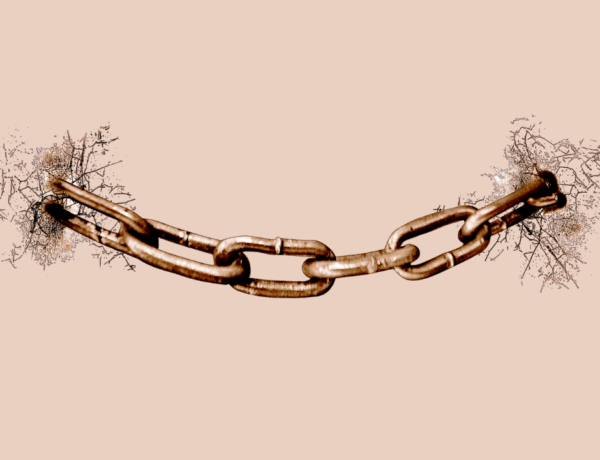By Erin George
These are turbulent times. As the nation grapples with the murder of George Floyd, citizens of all ethnicities and ages are flooding the streets, demanding change, as a coward shivers in his government-subsidized bunker. I am not able to join the demonstrations because I’m in prison, but, at least, I thought, I could share my own story about the police. Here it is.
The day I was arrested, my two older children were at school, so I’d spent the morning running errands with my youngest, Gio. We’d just had lunch at Applebee’s, and she was dozing off in her car seat in the back as we approached our home.
As we got closer to the house, I saw a cluster of people standing in my driveway: two men in suits – whom I recognized as the detectives who had been investigating the death of my husband months earlier – and a woman I’d never seen before. As my SUV pulled into the drive, they all stepped back to give me room.
The detectives watched me quietly as I unbuckled Gio from her seat, only approaching when I finally clutched her in my arms. Respectfully, even gently, they told me that I was being arrested for the murder of my husband. They asked me if I had any questions. They also asked me who they could contact to take care of my children. The woman, they explained, was a social worker who would make sure that my Gio would be safe and my other two children would be met at the school bus that afternoon.
I was numb and handed Gio to the clearly kind and concerned woman after one last, desperate embrace. I was allowed to lock my car, and, when Gio began to cry and reach for me, the detectives let me hold her again, to calm her and try to explain, as best I could to such a young child, that everything would be okay.
After giving Gio back again, I was carefully seated in the detectives’ car, brought to the police station, and booked.
I later learned that the social worker had taken Gio to a close friend’s house and that all of my children were immediately surrounded by people who loved them.
There, then, is my experience with the police.
It doesn’t sound familiar, does it? It’s nothing like all of the other stories we’ve all heard, the stories of violence and heartbreak that so many have endured.
You can justifiably ask, why is my story so different? What made me so special?
Did I have political clout or great wealth? Was I a celebrity? Or did the detectives arresting me have some doubts about my guilt? I did not and was not. And the cops most assuredly did not.
What I was was a middle class, suburban, white woman; no one special, except to my family and friends. That, it seems, was enough to ensure that I’d have no remarkable arrest experience to relate.
But when I hear other people’s – black and brown people’s – horrific stories of injustice and violence, I cannot use my own benign experience to dismiss those tragedies as aberrations; the acts of “a few bad apples” in the police ranks: the violence is too well-documented and widespread to dismiss.
No, my own story is only further proof of the poisonous open secret that taints our entire society: that there exists two parallel justice systems in America – one based on the ideals that give us the moral high ground as we preach to other countries for their human rights abuses, and a second that perpetuates those very same abuses we decry elsewhere.
What other explanation is there? How else could I, a woman accused (and eventually convicted) of murder, only feel the touch of a policeman as one chivalrously guided my head to avoid an unpleasant bump while being seated in his car, while generations of black men, women, and even children have felt a knee on their neck, a taser’s jolt, a bullet’s deadly blaze, simply for being suspected of selling loose cigarettes, passing a phony twenty dollar bill, or playing with a toy in a park?
My absence of such a story is not specific to me, either. White people have cell phones, too, after all, and I’m sure that if in white neighborhoods white suspects were being murdered by cops on the flimsiest of excuses, there’d be footage everywhere.
When I think about my childhood, I can’t remember a single instance of seeing a police car patrolling our neighborhood. In fact, the only time I ever saw a cop was when we had an assembly at school once about avoiding drugs. Nor did local police patrol the gated community where I eventually bought my own home. When I was arrested, I didn’t know of a single person among my family or friends who had also been arrested, much less incarcerated. I’d certainly never had to receive a talk from my parents instructing me on how to avoid being murdered by the police.
I know how privileged I was. But I am no more responsible for that privilege than people of color are for their own circumstances. So how, in a country that brandishes its ideals like a club, can something so random as a circumstance of birth determine whether you will walk or be carried away from an encounter with the police? And how much longer can people like me ignore it?

Erin George #1141067
* for more information click here



2 Comments
Dianne
September 17, 2020 at 4:06 pmThis is a sad, painfully true and beautifully well written personal account. And a poignant statement of the condition our society is in today. You are a talented writer. Thank you for this. ~ Dianne
Unknown
September 3, 2020 at 11:16 pmI'm so sorry for your loss and eventual arrest. I hope and pray your children are safe. And yes our nation is in serious need because of racial injustice. I am also a white female. I was convicted in Texas for having two ID's. Sad but true. Texas got their conviction and I did my little nine months. I will keep you and your family in my prayers…..Kate